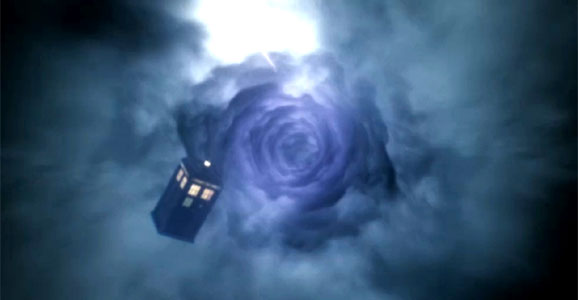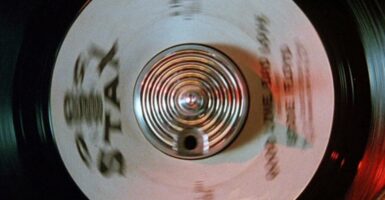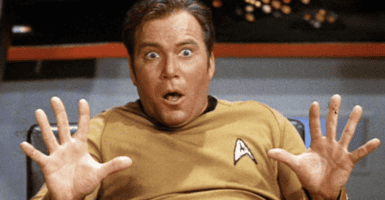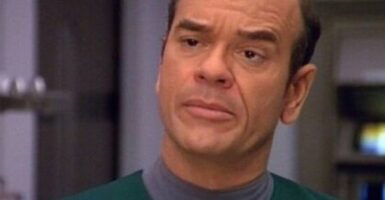The Two Ways Science Fiction Is Slowly Destroying Itself
We're all doomed.
Science fiction is in trouble and it’s not a lack of presence. Science fiction fans complain endlessly about the lack of sci-fi on television, but the truth is that there’s plenty of science fiction on television. There’s plenty of science fiction everywhere. It’s just the wrong kind.
Here’s a list of the science fiction movies being released through the rest of this year. See if you can spot a pattern…
Battleship
Men in Black III
Chernobyl Diaries
Piranha 3DD
Prometheus
Safety Not Guaranteed
Seeking A Friend For The End Of The World
Total Recall
Resident Evil: Retribution
Dredd
Looper
Did you catch it? Here’s the answer key…
Battleship: humanity doomed by alien attack
Men in Black III: time travel
Chernobyl Diaries: humans doomed by science run amok
Piranha 3DD: humans doomed by angry prehistoric fish
Prometheus: strange and dangerous discoveries on an alien planet.
Safety Not Guaranteed: time travel
Seeking A friend For The End Of The World: humanity doomed to a post-apocalyptic future
Total Recall: mind manipulation in a dystopian future
Resident Evil: Retribution: humanity in a doomed future full of zombies
Dredd: humanity doomed to a dystopian future
Looper: time travel
See the pattern? All of those movies, except for Prometheus, fit into one of two categories: Time travel or doomed, post-apocalyptic, dystopian future. Why should you care? Here’s the thing…

Time Travel Is Just An Excuse
Time Travel used to be the most surefire of science fiction premises. It gave us brilliant movies like Back to the Future, The Terminator, and Star Trek IV: The Voyage Home. Things started going south when Hollywood noticed how much money those time travel movies were making and wrongly assumed it was because of time travel, not great writing and directing. So they began working to insert time travel into all manner of ill-fitting vehicles, but that’s not what really killed it. Things really went wrong when time travel stopped being an actual premise and became more of an excuse.
At some point Hollywood had overused time travel so much that audiences became accustomed to it, so accustomed to it in fact, that they began to accept it shoehorned in just about anywhere. These days time travel isn’t actually used so much as an exciting science fiction premise but as an excuse for Hollywood to remake movies as a way to cash-in on their name recognition.
Time travel is now largely responsible for the destruction of the Star Trek franchise. The franchise’s last television series overused it until it lost all meaning and drove fans away. After a break they’ve managed to bring Star Trek back, but only by using time travel as an excuse to recast recognizable characters with hot, young actors. And Hollywood will keep using time travel to ruin existing franchises. They’ll keep changing the timeline in the Terminator universe as long as the name sells tickets. And now they’ve started using time travel as a way to sell decidedly not science fiction-based films to people who wouldn’t normally be interested. Did we really need The Time Traveler’s Wife? I loved Hot Tub Time Machine as much as the next guy, but how many more of these time traveling mashups can we actually stand?
Time travel used to be great but thanks to overuse and misuse it’s become a tired, worn out cliché. It’s a crutch lazy writers use to tie up loose ends. It’s a way to save money on production by shooting on leftover wild west sets. It’s killing franchises and tricking men into seeing romantic comedies. Time travel is not going to get any better than it was in Back to the Future. Maybe Doctor Who gets a pass since he predates the cliché, but unless you’re telling a story about a character who flies around in a blue police box, just stop it. Time travel has become an excuse, not a premise. Enough.

Humanity Is Doomed Or Self-Loathing In America
There hasn’t been a single space opera on television since the early cancellation of Stargate Universe, but your boob tube currently plays host to no fewer than three series set in a post-apocalyptic future (Falling Skies, The Walking Dead, and soon to arrive Revolution) with even more on the way. Even Terra Nova, which was recently cancelled, used a dystopian future in which humanity was doomed as a catalyst for its time travel story. The offerings in movie theaters are much the same; every other science fiction premise seems to involve telling the story of a future where Earth is doomed or society is repressed and everyone has to struggle to survive or be free. It’s no accident that the most popular sci-fi movie of the year so far is The Hunger Games, which tells the story of a future where humanity is fractured and forces its children to murder each other for sport. Things are no better in the world of literature where this year’s Arthur C. Clarke award winner, The Testament of Jessie Lamb, is about a future where our pregnant women all end up dead. Post-apocalyptic, dystopian science fiction sells, but its usefulness is rapidly wearing thin.
The “we’re all doomed” premise used to be edgy and insightful, but now it’s become so overused that it’s no longer interesting, it’s a cliché. It’s evidence that science fiction is stuck in a rut. This sub-genre’s popularity is more a commentary on the depressed and hopeless modern day mental state of most American entertainment consumers than an actual window into what people want to see. Our insistence on assuming that humanity’s future is doomed is in danger of becoming a self-fulfilling prophecy. That dismal outlook does nothing to inspire anyone to greater heights or really do anything to fire the imagination beyond, say, thinking up new ways to fortify the fallout shelter you’re digging in the backyard.
In 1976 NASA named its first space shuttle “Enterprise” after the starship featured in Gene Roddenberry’s Star Trek, a show which inspired many of its scientists to reach for greater heights. It’s unlikely that any future advancement will be named after anything in The Walking Dead.
Whether it’s alien or zombies or angry prehistoric fish attacks, asteroid fall out, freak power failures, mad science run amok, or just a run of really bad voting from an under-educated electorate… we get it. If society collapses and things go post-apocalyptic, life will be hard. If the future ends up all dystopian things won’t be very nice. There’s not really anywhere else to go with it.
Predicting the end of the world is easy. What happens, though, if the Earth keeps right on turning? The possibilities of a future in which we don’t kill ourselves or force our kids to become gladiators are as endless as they are endlessly exciting. Maybe it’s time science fiction went back to exploring them instead of using time travel to avoid innovation or giving up and predicting our doom. We can do better.












